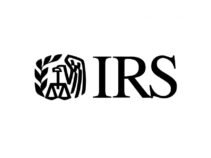Table of Contents
To make taxes less confusing for expats and retirees, Expatax is here to illuminate the features and functions of the Italian Tax Code, or 'Codice Fiscale.' This unique identifier is akin to the U.S.'s Social Security Number or the U.K.'s National Insurance Number. For further clarification beyond this piece, don't hesitate to use our "TAX AI" service located at the end of this article to ask any additional questions you may have.
Anyone, Anywhere, Can Request a Codice Fiscale
Irrespective of nationality, anyone can apply for a Codice Fiscale. It can be requested at the nearest Italian embassy, consulate, or tax office within Italy, and an appointment with the relevant office will be necessary. Conveniently, the Codice Fiscale is typically issued immediately and incurs no charges.
Significance and Uses of the Codice Fiscale
The Codice Fiscale, a fundamental element of Italian bureaucracy, serves as an individual identification tool for people, irrespective of their nationality or place of residence. It offers a unique way of distinguishing individuals, quite akin to the Social Security Number in the United States, or the National Insurance Number in the United Kingdom. As such, it is an essential requirement for any form of interaction that one might have with the Italian government.
One of the most notable interactions where the Codice Fiscale becomes essential is during property purchase and property auctions. It plays a pivotal role in ensuring a smooth process by uniquely identifying the prospective buyer, thereby reducing the chance of any fraudulent activities. To make things short, you will not be able to buy a property without a Codice Fiscale.
Another significant area where the Codice Fiscale is a requirement is for obtaining a health card, known locally as 'Tessera Sanitaria'. This card is a ticket to Italy's healthcare system. The health card, linked with the Codice Fiscale, ensures that every patient can be uniquely identified and their health records accurately maintained. Beyond the public sector, the Codice Fiscale is equally important in the private sector, especially regarding private contracts.
Whether it is for leasing an apartment, setting up internet services, or signing employment contracts, the Codice Fiscale aids in keeping these agreements regulated and correctly recorded. In fact, you won't generally be able to buy an Italian sim card without one. If you're planning to move to Italy or have just begun residing there, we strongly recommend you request a Codice Fiscale right away.
Unique Features of the Codice Fiscale
Spanning 16 characters, the alphanumeric Codice Fiscale is issued by the Italian government's tax authority, the Agenzia delle Entrate. Although initially issued as paper or plastic cards, it's common now to find the tax code inscribed on combined Italian health insurance cards that present an expiration date for qualifying residents.
Do Not Use a "Codice Fiscale Generator"!
For individuals, 16 alphanumeric characters make up the tax code, while for companies, it consists of 11 numeric-only characters. These computations take into account personal details, such as surname, gender, birthplace, and date of birth. To prevent discrepancies and duplications, only the tax office can issue an official tax code. While it is generally true that online services that "generate" a codice fiscale end up giving out the same result as the official one, this isn't always true. Furthermore, you must have the Italian tax authorities assign you one - if they haven't, and you "generate" a codice fiscale on a third party website, it will not be valid and, worse still, by using it you will be committing fraud at Italian law. Just ask the local tax office or the nearest consulate to give you one - it's quick and free of charge.
Special Consideration for Women
In Italy, a woman's surname doesn't officially change after marriage, rendering a new fiscal code or identity documents unnecessary if she had one prior to the wedding. However, for those obtaining the fiscal code post-marriage, especially expatriates, the principal identification document's surname must be used when applying for the fiscal code. In a nutshell, the codice fiscale you get when you request it is yours for life.
Video explanation from the Agenzia delle Entrate
The Italian tax authorities have helpfully created a video covering the essentials.






